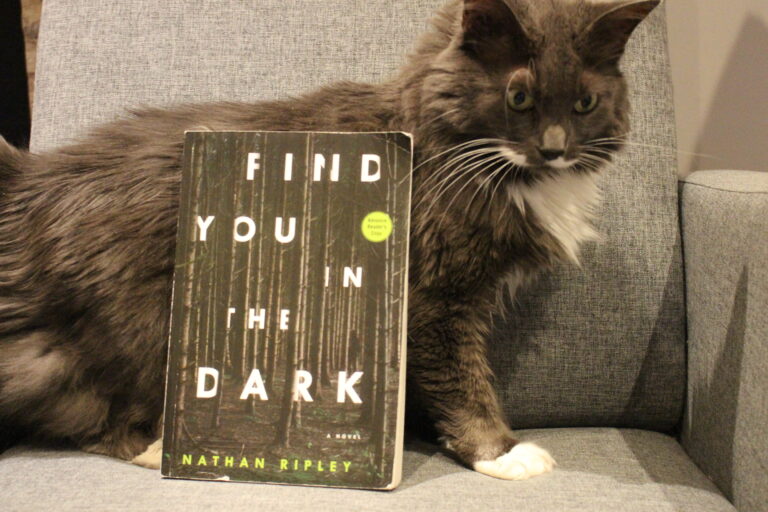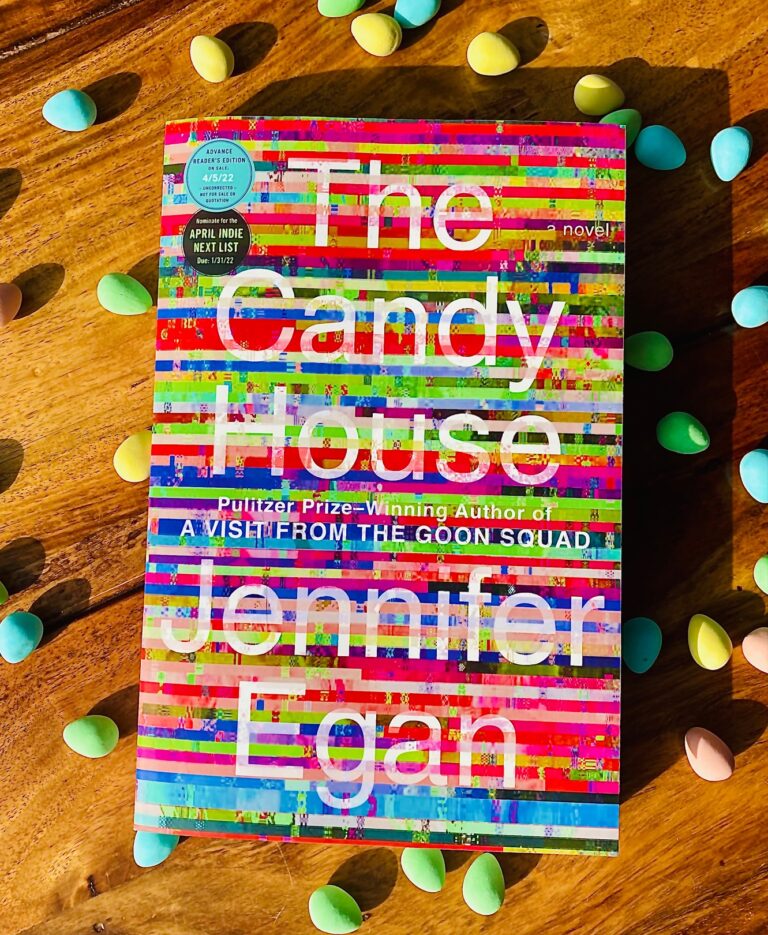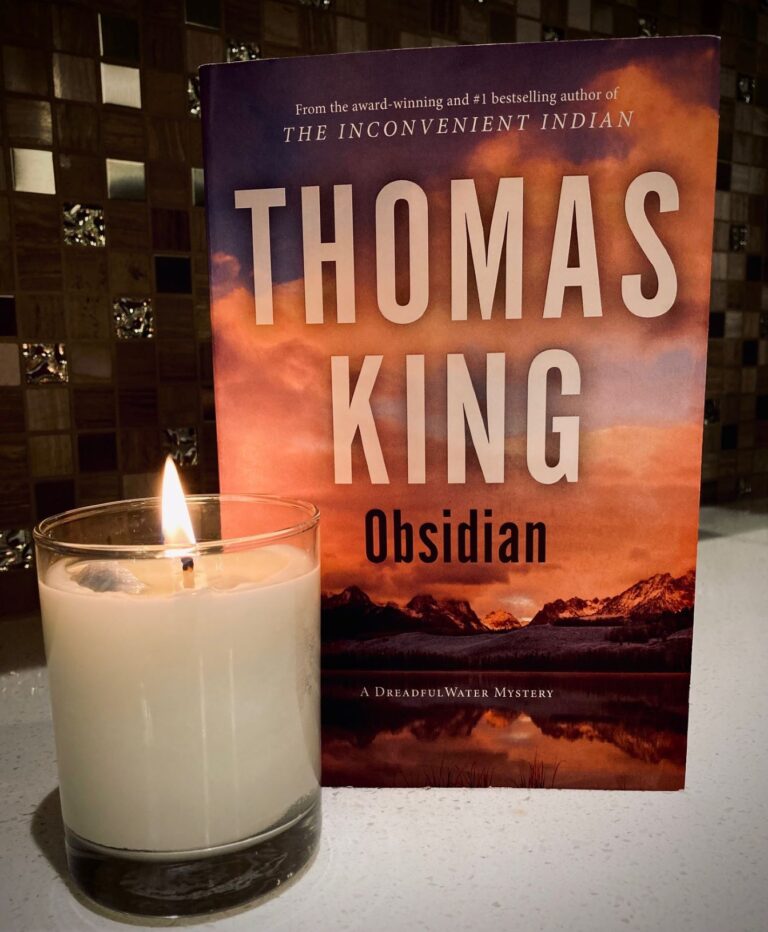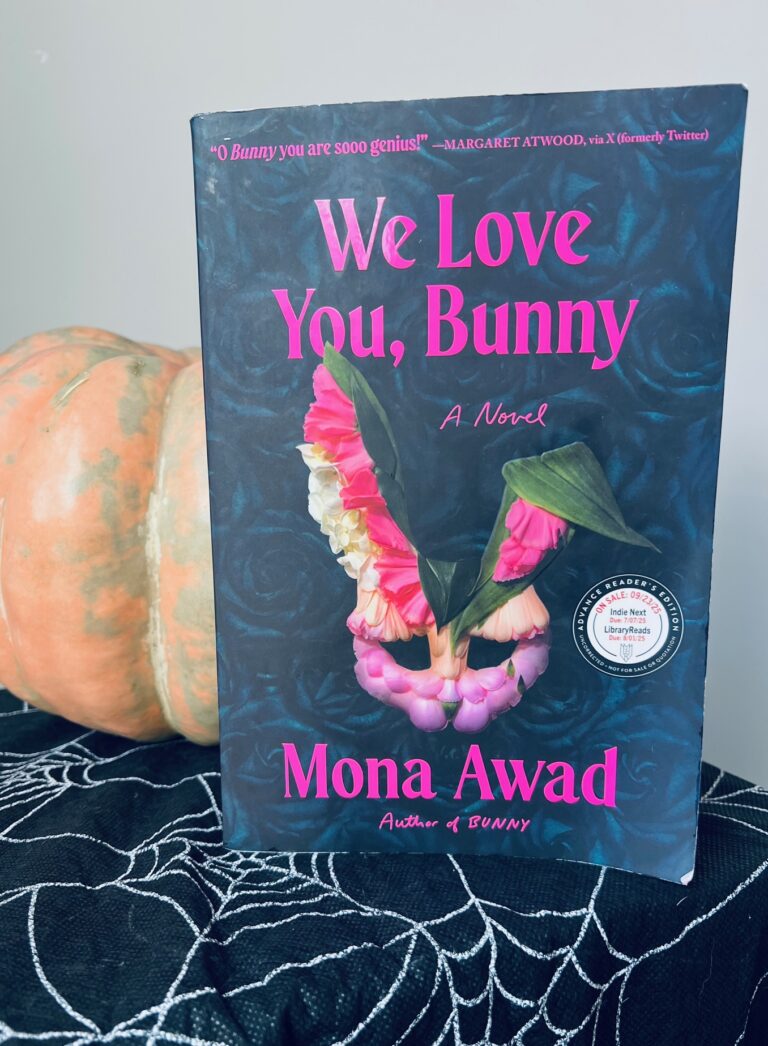Book Review: Madwoman by Chelsea Bieker

I wasn’t sure what to think of Madwoman by Chelsea Bieker when it first arrived on my doorstep – was this a thriller, or a work of literary fiction? The cover was difficult to decipher, until I saw that Ashley Audrain had blurbed it. Ah yes, a thriller then. For those who follow along with my blog regularly, Audrain has written a few domestic thrillers, usually about parenting, of which you can find my reviews here and here. The publisher’s page has tagged this book as literary fiction however, which I disagree with. There are BIG secrets in this book, and there are moments of terror, twists, danger and death. And a trigger warning for those who want to read further; domestic violence is explicitly referred to throughout the novel.
Plot Summary
Clove is living a life that’s layered with lies, anxiety, and dark secrets. An only child, she grew up in Hawaii with an alcoholic mother, and a violently abusive father. Many times her mother and her tried to leave, but they were always dragged back, and punished. Finally they had enough, and Clove’s mother pushed her father over the balcony of their apartment, killing him during one of their nightly struggles. Clove fled the island and started a new life on mainland U.S.A., later discovering her mother went to jail and has been there ever since. Clove’s life is picture-perfect now; a nice husband who would never even raise his voice; two lovely children, and an Instagram account with thousands of followers who soak up Clove’s healthy, organic lifestyle. But an unexpected letter from her mother shatters this perfect image; she has finally found Clove and is asking for her help in arguing her way of jail. if Clove can testify that this struggle was self-defense and they were regularly abused, she could finally be released. Clove has never spoken about her childhood to anyone; her husband thought her parents died in a car crash, and doesn’t even know that Clove isn’t her real name. And when Clove befriends a young woman at their local grocery store, she realizes that she’s never made real friends, all in order to keep her secret, which is slowly eating away at her. Clove has translated this anxiety into a restrictive diet and online purchases she can’t afford, all building up more and more secrets between her and the family she is focused on keeping safe. So she hires this woman as her nanny in an attempt to focus on herself and her lack of a personal life, but this new addition to the family home may not be who she seems either.
My Thoughts
Although this book deals with difficult, complicated issues, it never overwhelms the reader enough to put it down. A fairly new writer, Bieker still understands the very critical fact that these ‘issues’ cannot overshadow the need for a plot, and a reason to keep reading. Clove’s desire to keep these secrets plus life a life she wants provides the suspense needed to keep the pages turning, and the introduction of this mysterious woman who Clove is almost unhealthily obsessed with also ramps up the tension. This is why I couldn’t consider this simply a work of literary fiction; so much of it felt like life or death decision-making. And the character-building was incredibly nuanced as well; Clove’s father could have easily been cast as a villain with no redeeming qualities, but Clove felt the same rage building inside of her that her father could not control, so she often related to him, rather than reviled him.
Another interesting point this book raises; the difference one approaches life when their family history is steeped in trauma, and the ways this shapes their outlook and actions as a parent themselves. In many cases this trauma is simply replicated; we know that those who grow up in a household with violence and drinking can easily fall into that same pattern, but what about the people who actively break that harmful cycle? Clove is an incredible example of this, yet she will never shed that history either:
“…I would never catch up to the very apparent generational wealth all around me. I wasn’t talking about money, though that mattered too. I was talking about the wealth of familial love. The leg up of a trauma-free or low-trauma childhood. The students around me had parents who called every other day, who beckoned them home for the holidays, where their childhood bedrooms were still intact, like shrines. They had not had to bloody their hands to get a seat at the table.” (p. 144-145, Madwoman by Chelsea Bieker)
This quote is such a startling, but clear way of defining a privilege that hasn’t really been talked about before. Some people have a healthy childhood that nurtured them, while many others, did not. How does a healthy loving upbringing compare to money in terms of privilege? It’s widely understood in the social sector that childhood trauma has a rippling affect in an adult’s life, in fact you can take a free online course that explains how it changes the physical structure of one’s brain. But I’m not sure this is a widely accepted fact in regular society, and this very well-written book suggests we take a closer look at these connections, as well as the hope that breaking the cycle can offer people.





I would suspect this book is a thriller the minute I learned that maybe the new friend from the grocery store couldn’t be trusted. What are the chances that a woman with a secret life meets another woman with a secret life?
duh duh duh!!!!!!
Oh wow, this sounds intense but compelling!
Definitely both those things!
This sounds excellent – I do hope it’s available over here. I was struck when you said “Clove’s father could have easily been cast as a villain with no redeeming qualities, but Clove felt the same rage building inside of her that her father could not control”. It reminded me of a woman I knew once who regularly ranted about how her father had been a bully who took it out on everyone around him when he got angry, and I used to listen, thinking that the woman obviously didn’t know that she had exactly that same reputation.
Yes, it was very poignant how that author drew these connections between the abusive father, and the angry daughter (but angry in a way she never showed outwardly). Plus, it was a page-turner! The best of both worlds.
I’m not sure this is one for me, but I do appreciate any work of art that challenges the old stereotype that children replicate parents’ abusive behaviours. There are studies that validate that, but there are also studies that validate the opposite, that such children were motivated to exhibit the exact opposite behaviours (in response to their childhood trauma). And I’m still curious, what was it about the author’s style that convinced you that it should have been marketed as genre rather than lit fiction?
Good question! It was very plot driven, and the twists at the end starting to pick up speed, get a bit more outlandish, etc. The character’s motivations started to feel a bit weaker, all in sacrifice to the plot moving – which of course isn’t such a bad thing, it just started to become a bit more unbelievable…